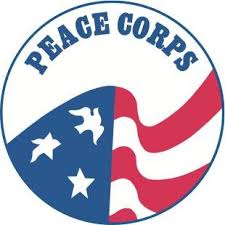The Peace Corps in the Time of ISIS
In 21st century campaigns we’ve become accustomed to candidates stating their priorities by saying what they’ll do on Day One. On that day, he or she will end Obamacare or defund Planned Parenthood. What John F. Kennedy did, on the first day of the second month of his administration—March 1, 1961—was sign an executive order creating The Peace Corps.
This grass-roots, volunteer approach to the social and economic development of Third World countries, Peace Corps “symbolized what America wanted to be, and what much of the world wanted America to be: superhero, protector of the disenfranchised, defender of the democratic faith,” wrote Elizabeth Cobbs Hoffman in her 1998 book, All You Need Is Love.
In the U.S., in 1961, a new generation of citizens took it as a challenge and a gift when Kennedy called on Americans to “ask what you can do for your country.” Mostly young volunteers knew impoverished countries only as places where their fathers had waged wars and missionaries had sought souls.
Now, they could take their skills, knowledge and altruism to developing countries and meet strangers not with a rifle but a handshake—not with diplomatic protocols, but with a willingness to work alongside others, sometimes of different races, while learning about and growing to understand new cultures and religions.
Today, five decades after Kennedy lit the torch, it’s very clear: The current generation of Volunteers needs new protocols for service in an increasingly troubled and hostile world. Sixties optimism needs to be reengineered to oppose the threatening ideology of the Islamic State of Iraq and Syria.
Here are 8 ways the next Administration could improve the agency.
Peace Corps Volunteers In Refugee Camps
To help alleviate the refugee crisis, PCVs could be assigned to refugee camps as teachers and healthcare providers with other agencies. In that way, the Peace Corps vision could be blended with that of other international and domestic refugee workers.
A Peace Corps for the Planet
Earth is imperiled. We are living in an age of unprecedented degradation of biological diversity, the greatest period of mass extinction since the dinosaur era. At the same time, we are experiencing dangerous levels of temperature rise owing to climate change and seeing an increasing incidence of major natural disasters.
The Peace Corps could help by deploying its expertise in appropriate solutions: installing solar and wind energy, promoting agro-forestry and permaculture practices and helping communities devise strategies to deal with loss of wilderness and habitat areas.
Cadre of Independent Volunteers
Some PCVs have always been most successful when allowed to operate on their own, and given the communications wonders of the 21st century, more of them could now exercise that option.
Create a Crisis Corps
Like the Canadian Forces Disaster Assistance Response Team, reinstate the Crisis Corps to assist in international disasters. PCVs specially trained and equipped to offer aid and assistance post-disaster.
Create an Advance Corps
Americans with certain qualifications or expertise could be given the opportunity to obtain career experience while achieving tangible results. These opportunities could range from one month to one year. The range of projects might include food security, civil engineering, information systems, library science, and university-level teaching.
Peace Corps Volunteers on the Front Lines
We need to place Volunteers in local settings to work with these families and educate the young to know that, beyond radical jihad, there are other paths to personal happiness and salvation. This requires putting Volunteers in harm’s way. The risk may be greater today but that isn’t new to Peace Corps Volunteers.
Collaboration with the United Nations
Based in Bonn, Germany, the United Nations Volunteer effort includes 6,500 active volunteers in 130 countries. UN volunteers comprise one third of all international civilians working in such operations. Joining with the United Nations, Peace Corps Volunteers would blend into the societies of developing countries, helping the United Nations to succeed.
Birkenstocks not Boots on the Ground
These proposals are intended to restart an incredibly value resource in America’s ideological war with ISIS and the rest of radical Islam. They are intended to rejuvenate a vibrant agency by taking advantage of the technologies that are bringing generations and nationalities into closer and closer proximity. The Peace Corps is a terrible thing to waste. We seek to expand the agency, in terms of funding dollars and enrollment numbers, yes, but also in terms of its responsiveness to current developments. In a world increasingly peopled by displaced multitudes and ruptured by despots and jidadists, the Peace Corps can again step forward to be, as Elizabeth Hoffman once wrote, “protector of the disenfranchised, defender of the democratic faith.”
John Coyne


Good stuff, John.
Great suggestions!
Peace has a place in every breath and we must utter in now while we can. We didn’t invent ourselves nor get it off the grass way back down that long winding longing line. We have been seeking to be a people from the beginning of our supposed origins. Will we end ourselves before we find who we seek?
Good suggestions, John, for placing Peace Corps again at the center of some of the most intractable issues confronting the globe. As long as the U.S. continues to think of military engagement as the primary “face” to present to other nations, we will never get past the enmity that divides. Unarmed Peace Corps volunteers are the key to renewing a sense of hope again around the world of what an American arriving in-country means: progress toward something better.
What a great way to begin a discussion of where Peace Corps should go in its second half century (!). My thoughts:
I think this is an excellent idea to assign well-trained PCVs
to Refugee Camps. I believe that this is where the Peace Corps
could collaborate with the United Nations.
Peace Corps is already engaged in activities such as you suggested: “ installing solar and wind energy, promoting agro-forestry and permaculture practices and helping communities devise strategies to deal with loss of wilderness and habitat areas.” The only problem, as I see it, is that Peace Corps posts pictures of smiling people standing next to green plants, but if they are systematically publishing and sharing technical knowledge, I have not been able to find it.
As for an “Advance Corps” this is very similar to what
Peace Corps Response has become. Its partnerships with
various organizations utilize the talents of experts, including
non-RPCVs for short-term assignments.
Where I would disagree is with this: “We need to place Volunteers in local settings to work with these families and educate the young to know that, beyond radical jihad, there are other paths to personal happiness and salvation.” My concerns are twofold:
-The real danger could be, not to Volunteers but to HCNs who might associate with Peace Corps and be subject to retaliation.
-Intervention in the lives of families without a specific invitation
is, I believe, contrary to the Peace Corps ethic.
Excellent and timely set of proposals, John!
Let’s hope your essay gains a wider readership by appearing elsewhere, e.g., in the prestigious quarterly “Foreign Affairs” of the Council on Foreign Relations or the monthly “American Diplomacy,” a 20-year-old publication whose Feb. 2016 issue posted a link to my commentary on the movie “13 Hours: the Secret Soldiers of Benghazi” (that first appeared in your former “Peace Corps Worldwide”).
As a contributor to an upcoming history of the United Nations Association of the USA, I especially appreciate your identifying a possible partnership with the United Nations Volunteer program. Also urging the posting of PCVs to assist refugees offers another way of connecting with the UN through the agency of the United Nations High Commissioner for Refugees. All of us in the Peace Corps world are well aware of the plight of millions of Syrian and other refugees; advocating your proposal to staff of UNHCR in New York and Washington would be a start. (UNHCR’s headquarters is in Geneva.)
While I applaud the general idea expressed in your “Peace Corps Volunteers on the Front Lines,” I’m sympathetic to Joanne Roll’s concern about potentially putting HCNs in harm’s way due to retaliations by ISIS. However, let’s think of some way of safeguarding HCNs against the danger.
For now, thanks for proposing “new protocols” for the Peace Corps, soon to conclude its 56th year of operations. –Tino
Excellent John…should be given to each new Volunteer and Response Volunteer. Might also have for new staff, especially those that have never had a Peace Corps experience.
The Peace Corps should not intentionally and knowingly place their volunteers in danger. ie: sending them to a hostile nation that the US State Department has advised not to go to. If they insist on doing this, at least give them training to defend themselves.